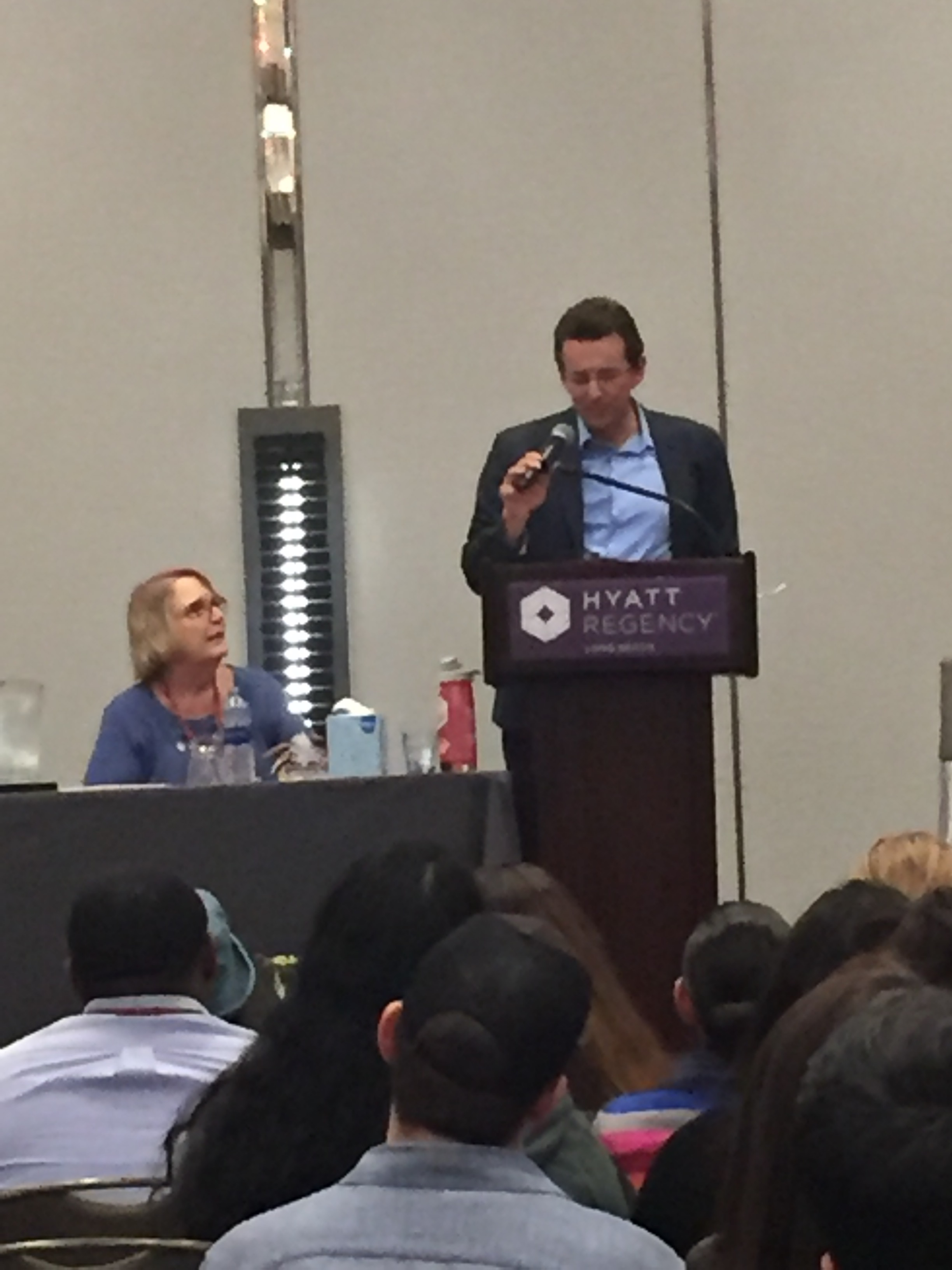Christopher Goffard has written a couple thousand stories throughout his journalistic career of more than two decades. He said he’s probably really proud of a handful of them, but the Dirty John podcast has gotten more attention than any of his previous work.
Goffard, a journalist with the Los Angeles Times, spoke during the recent Associated Collegiate Press Midwinter National College Journalism Convention about his foray into podcasting, the first ever done by his paper.
Goffard shared the top 10 things he learned from his first podcast.

1. It’s all about the story, now and always.
Dirty John is a great podcast series because it is a story with a beginning, middle and end, and it has sympathetic characters that a lot of people relate to, Goffard said.
If you don’t know the story of Dirty John, it’s about the violent relationship between Debra Newell, a successful interior designer, and John Meehan, a handsome conman who her family never accepts or likes.
Goffard previously told Rolling Stone about Meehan:
“I’ve written hundreds and hundreds of stories about very bad people. I’ve been a reporter for 20 years … but there’s something about this guy, John Meehan, that chills me, that gets under my skin in a way that nobody else has.”
Reporting for the podcast, which has more than 20 million listens, took more than a year, Goffard said.
“Find a story and report the hell of it. Tell it well and the audience will come,” Goffard said. “You have to earn people’s attention with a well-told story.”
2. You will grapple with ethical issues unique to the medium.
Goffard said he didn’t anticipate having a debate about the ethics of sound effects. But as more and more sound effects were added to the podcast, he became concerned that they compromised the reporting and asked for them to be removed.
3. In the over-crowded world of podcasts, your reporting skills are an advantage.
Trust building, interviewing and finding open records are valuable skills that journalists bring to podcasting, Goffard said.
“I don’t think these are skills that most podcasters have,” he said.
4. Your barrier to entry is pretty low.
It doesn’t take a lot to become a podcaster, Goffard said. He said it takes about $1,000 to buy all of the necessary equipment. He also said that journalists are poised to become podcasters because we’re used to going in ignorant and asking really basic questions, which is necessary for a good podcast.
5. You have been mispronouncing “Nevada” your whole life.
I had to laugh at this point because I have a couple of students from Nevada who are super picky about this. Apparently it’s a thing among people from that state. The rest of us clearly don’t get it.
6. Your podcast can reach more people than a print story, but it will draw people to your publication and get them to subscribe.
Podcasts are popular because they allow people to listen while doing other things, Goffard said. But he said it’s important to cross-pollinate your work between mediums to get the most out of all of your content.
7. You need to be aware of the cat.
Random bits of sound are something you don’t have to worry about as a print reporter, but Goffard had to ask a source to retell an important and emotionally taxing part of her story after her cat “lost its mind” because it was shut in another room during the interview.
8. It doesn’t have to be about you, as fascinating as you may believe yourself to be.
Other popular podcasts tell stories through the eyes of a narrator. Goffard did not want to be part of the story, so he used a more journalistic approach to the storytelling.
9. You have to stop saying “uh huh” during interviews.
You learn a lot about your bad vocal habits when you’re recording every interview with plans to share the audio, Goffard said.
10. You are not going to be murdered if you fail.
But, Goffard said, “your comfort zone will kill you.”
“I’m always trying to lash against the outside of my comfort and abilities,” he said. “If you take a chance, you might be able to get away with a few things.”



Leave a Reply